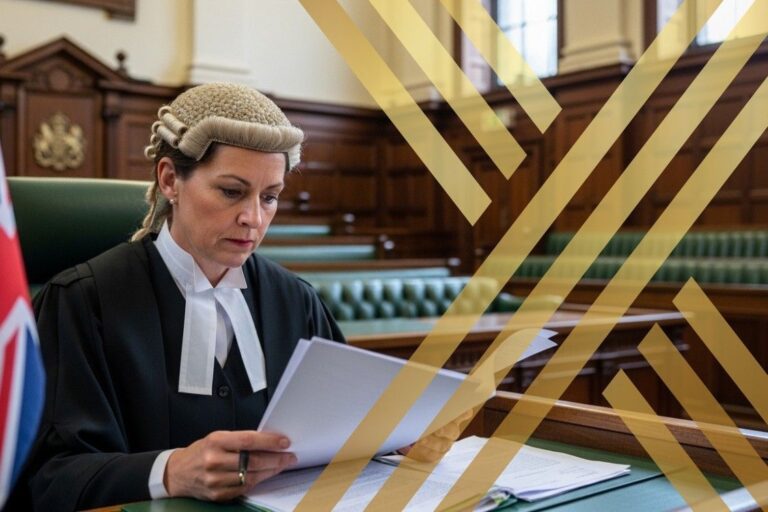Understanding the Post-Study Work Permit in the UK
The Post-Study Work Permit in the UK, also known as the Graduate Visa, allows international students who have completed an eligible degree at a UK higher education institution to stay and work in the UK for up to two years (or three years for doctoral graduates). This permit provides graduates with the opportunity to gain valuable work experience, explore career opportunities, and potentially transition to a longer-term work visa.
The UK government introduced the Graduate Visa to attract and retain skilled talent, recognising the contribution that international graduates make to the workforce and the economy. For many international students, securing a post-study work permit is the first step toward building a professional career and achieving long-term residency in the UK.
At AXIS Solicitors, we specialise in helping international graduates successfully apply for the Graduate Visa. Our expert team provides tailored advice on eligibility requirements, documentation, and application procedures to ensure a smooth transition from student status to professional employment.
Why Apply for a Post-Study Work Permit in the UK?
The Post-Study Work Permit offers several professional and personal advantages, making it a valuable option for international graduates:
1. Career Advancement and Professional Growth
- The Graduate Visa allows you to work in any job or sector without the need for employer sponsorship.
- Graduates can gain valuable work experience, develop professional skills, and build industry connections.
- Many graduates secure positions in high-demand sectors such as:
- Information Technology (IT)
- Engineering
- Healthcare
- Finance
- Construction
2. Flexibility and Freedom
- The Graduate Visa provides flexibility to switch jobs or explore self-employment options.
- There are no restrictions on the type of work or employer.
- Graduates can work part-time, full-time, or in multiple roles simultaneously.
3. Pathway to a Skilled Worker Visa
- After gaining work experience under the Graduate Visa, many graduates transition to a Skilled Worker Visa.
- The Skilled Worker Visa allows long-term employment and leads to Indefinite Leave to Remain (ILR) after five years.
- Graduates who secure a job in an eligible occupation with a licensed sponsor can switch to a Skilled Worker Visa without leaving the UK.
4. Financial Independence
- Unlike a student visa, the Graduate Visa allows full-time work with no income restrictions.
- Higher earning potential allows graduates to support themselves and their families more comfortably.
- Financial stability improves opportunities for securing better housing, managing expenses, and planning for the future.
Eligibility Requirements for a Post-Study Work Permit
1. Completion of a Degree at a Recognised UK Higher Education Provider
You must have successfully completed one of the following qualifications at a UK higher education institution that is a licensed sponsor with a record of compliance:
- Bachelor’s degree
- Master’s degree
- PhD or other doctoral qualification
- Certain professional qualifications (like those in law, medicine, or engineering)
The degree must be awarded by an institution that holds the status of a “Student Visa sponsor with a track record of compliance.”
- The institution must be listed on the UK government’s Register of Student Sponsors.
- If the institution loses its sponsor status before you complete your degree, you may lose your eligibility.
2. Holding a Valid Student Visa at the Time of Application
You must have a valid Student Visa (Tier 4 Visa) when you apply for the Graduate Route.
- If your Student Visa has expired, you cannot apply for the Graduate Route.
- You must apply while you are still in the UK.
You cannot switch to the Graduate Route if you hold a visa in another category (e.g., Skilled Worker Visa).
3. Minimum Duration of Study in the UK
You must have studied in the UK for a minimum period depending on the length of your course:
- 12 months if your course lasted more than 12 months.
- For shorter courses, you must have studied for the full duration of the course in the UK.
If you started your course remotely due to COVID-19, you are still eligible if:
- You entered the UK on or before 30 June 2022 to complete your course.
4. Successful Completion of the Course
You must have fully completed your course and received confirmation from your institution.
- The completion of your degree must be officially recorded with the UK Home Office by your university.
- If you fail to meet the academic requirements or drop out of your course, you will become ineligible.
Proof of successful completion includes:
- An official degree certificate
- A transcript of results
- Formal confirmation from your university
5. No Previous Graduate Route Visa or Doctorate Extension Scheme Visa
You can only apply for the Graduate Route once in your lifetime.
- If you have already been granted a Graduate Route or Doctorate Extension Scheme visa, you cannot apply again.
- However, you can switch to another visa type, such as the Skilled Worker Visa, if you meet the requirements.
6. No Criminal Record or Breach of Immigration Laws
You must meet the UK Home Office’s “good character” requirement:
- No serious criminal convictions
- No breaches of UK immigration laws during your stay
- No history of overstaying a visa or engaging in illegal activities in the UK
Minor traffic violations or civil penalties typically do not affect eligibility, but criminal offences or visa fraud could result in refusal.
7. Application from Inside the UK
You must apply for the Graduate Route from within the UK.
- Applications from outside the UK are not permitted.
- If you leave the UK after your Student Visa expires and before applying, you will become ineligible.
8. Dependants Eligibility
You can only bring dependants under the Graduate Route if:
- They were already in the UK as your dependents under your Student Visa.
- They apply at the same time as you.
New dependants (such as a spouse or children) cannot be added once you switch to the Graduate Route.
9. Financial Requirement (No Proof of Funds Required)
Unlike other visas, the Graduate Route does not require proof of funds.
- You do not need to show a specific bank balance or financial statement.
- However, you must have enough funds to cover the visa application fee and the Immigration Health Surcharge (IHS).
Step-by-Step Process for Applying for a Post-Study Work Permit

Applying for a Post-Study Work Permit (Graduate Visa) involves several key steps. It’s important to follow the correct process to avoid delays or rejection.
Step 1: Confirm Your Graduation Status
- Ensure that your university has reported your successful course completion to the Home Office.
- Obtain a transcript or confirmation letter from your university if needed.
Step 2: Prepare Your Documents
The required documents include:
- A valid passport or travel document
- Confirmation of course completion
- Your current BRP (Biometric Residence Permit)
- Proof of identity and address
Step 3: Submit an Online Application
- Apply through the UKVI (UK Visas and Immigration) portal.
- Pay the application fee (£715) and the Immigration Health Surcharge (£1,035 per year).
Step 4: Attend a Biometric Appointment
- Provide biometric information (fingerprints and a photograph) at a UKVCAS service point.
Step 5: Await Decision
- Most applications are processed within 8 weeks.
- If approved, you will receive a digital visa status confirming your right to work in the UK.
The steps for application can be troublesome. We at AXIS Solicitors are always here to guide you, we provide expert support to help you avoid these issues and ensure a successful outcome.
Validity and Conditions of the UK Post-Study Work Permit
- Duration of Stay
- Bachelor’s or Master’s degree holders: 2 years.
- PhD or doctoral degree holders: 3 years.
- Work Conditions
- You can:
- Work in most jobs, including self-employment.
- Change jobs without notifying the Home Office.
- Engage in voluntary work.
- You cannot:
- Work as a professional sportsperson (including coaching).
- Access public funds (such as benefits).
- Study at a state-funded school or college.
- You can:
- Switching Visas
- You cannot extend the Graduate Visa itself, but you may switch to another visa category (e.g., Skilled Worker Visa) before it expires if you meet the eligibility requirements.
- Dependents
- If your partner and children are already in the UK as your dependents, they can apply to stay as dependents under the Graduate Visa.
- New dependents (except children born during the visa period) cannot be added under this route.
Fees and Costs for the UK Post-Study Work Permit
- Application Fee
- The Graduate Visa application fee is £822.
- Each dependent applying with you will need to pay the same fee (£822).
- Healthcare Surcharge
- You must pay the Immigration Health Surcharge (IHS) when applying.
- The cost is £1,035 per year for each applicant.
- For a 2-year Graduate Visa: £2,070 per person.
- For a 3-year Graduate Visa (for PhD graduates): £3,105 per person.
- Additional Costs
- Biometric appointment – Free for most cases, but may cost up to £100 for premium service.
- Translation fees – If any documents are not in English or Welsh, you must provide certified translations, which may cost between £20–£100 per document.
- Total Estimated Cost Example
Example for a single applicant with a 2-year Graduate Visa:- Application fee: £822
- IHS fee: £2,070
- Total: £2,892
Application Processing Time for the UK Post-Study Work Permit
- Standard Processing Time
- The typical processing time for the Graduate Visa is 8 weeks from the date you submit your complete application, including all supporting documents and biometrics.
- Delays and Potential Causes
Processing may take longer if:- Additional documents are requested by UKVI.
- There are complications with verifying your identity.
- You have a history of visa refusals or immigration issues.
- Priority and Super Priority Services
- Priority and Super Priority services are not currently available for Graduate Visa applications.
- You cannot pay extra to speed up processing for this visa type.
- Application Status Updates
- You can check your application status online through the UKVI portal.
- UKVI may contact you if they need additional information or clarification.
Transitioning to a Skilled Worker Visa
After gaining experience under the Graduate Visa, many graduates choose to switch to a Skilled Worker Visa for long-term employment and settlement.
Key Requirements for a Skilled Worker Visa:
- A confirmed job offer from a licensed UK employer
- Salary of at least £26,200 per year (or £20,960 for shortage occupations)
- A valid Certificate of Sponsorship (CoS)
- Meeting the English language requirement
Benefits of a Skilled Worker Visa:
- Valid for up to 5 years
- Leads to Indefinite Leave to Remain (ILR) after five years
- Access to public benefits and long-term residency options
Work Rights and Limitations Under the UK Post-Study Work Permit
- Permitted Work
- You can work in any job at any skill level without restriction.
- You can work full-time or part-time.
- Self-employment and freelance work are allowed.
- Types of Work Allowed
- Permanent and temporary jobs
- Contract work
- Internships and work placements
- Voluntary and unpaid work
- Restricted Work
- You cannot work as a professional sportsperson or sports coach.
- You cannot access public funds (e.g., benefits or housing assistance).
- You cannot work as a doctor or dentist in training unless you meet specific conditions.
- Business Activities
- You can set up and run your own business, but it must comply with UK business regulations.
- No requirement for a minimum investment or proof of funds for business activities.
- Switching Jobs
- You are free to switch jobs without informing the Home Office.
- There are no restrictions on the number of employers or industries you can work for during the visa period.
Challenges and Limitations of the Post-Study Work Permit
- Limited Duration
- The Graduate Visa lasts for two years (or three years for doctoral graduates), after which you must switch to another visa type or leave the UK.
- Time spent on a Graduate Visa does not count toward settlement (Indefinite Leave to Remain).
- No Access to Public Funds
- Holders of a Graduate Visa are not entitled to access public funds such as benefits, housing support, or social security.
- You are expected to support yourself through work or other means during your stay.
- Job Type Flexibility but No Sponsorship
- While you can work in any job without needing sponsorship, the visa does not allow you to work as a professional sportsperson or coach.
- If you want to stay in the UK beyond the Graduate Visa period, you’ll need a job that qualifies for a Skilled Worker Visa or another suitable route.
- Dependents
- Dependents (spouse/partner and children) can stay with you under the Graduate Visa only if they were already dependents on your Student Visa.
- You cannot bring new dependents under the Graduate Visa.
- No Direct Path to Settlement
- Unlike other work visas (e.g., Skilled Worker Visa), the Graduate Visa does not lead directly to settlement in the UK.
- You must switch to a visa that counts towards settlement to eventually apply for Indefinite Leave to Remain (ILR).
- Healthcare Surcharge and Fees
- You are required to pay the Immigration Health Surcharge (IHS) for the duration of the visa.
- The surcharge is currently £1,035 per year.
- The Graduate Visa application fee is £822.
- Tax and National Insurance Contributions
- You are required to pay income tax and National Insurance contributions on your earnings, like any other worker in the UK.
At AXIS Solicitors, we provide expert support to help you avoid these issues and ensure a successful outcome.
Guidance for a Successful Post-Study Work Experience
- Start Job Hunting Early
- Don’t wait until your course ends to start looking for a job.
- Begin applying during your final semester to gain an advantage over other graduates.
- Use university career services, job fairs, and online platforms like LinkedIn and Indeed.
- Leverage University Resources
- Most universities in the UK offer career support, including:
- CV and cover letter reviews.
- Mock interviews and career coaching.
- Networking events with potential employers.
- Take full advantage of these resources before and after graduation.
- Most universities in the UK offer career support, including:
- Network Actively
- Networking is key to finding job opportunities in the UK.
- Join industry events, alumni groups, and professional organizations.
- Use LinkedIn to connect with professionals and recruiters in your field.
- Enhance Your Skills
- The UK job market values skills like problem-solving, communication, and teamwork.
- Consider taking online courses or certifications to strengthen your skill set.
- Adapt your resume to reflect both technical and soft skills.
- Research and Target Key Industries
- Focus on sectors with higher demand for skilled workers, such as:
- Technology
- Engineering
- Healthcare
- Finance
- Education
- Target companies that are listed as licensed sponsors for Skilled Worker Visas.
- Focus on sectors with higher demand for skilled workers, such as:
- Be Prepared for the Interview Process
- UK employers often use competency-based interviews.
- Prepare to answer questions using the STAR method (Situation, Task, Action, Result).
- Research the company thoroughly and prepare thoughtful questions for the interviewer.
- Maintain a Professional Online Presence
- Keep your LinkedIn profile updated and professional.
- Ensure your social media accounts reflect a positive image.
- Engage with industry-related content and participate in professional discussions online.
- Consider Temporary or Contract Roles
- If securing a permanent role is challenging, consider temp or contract jobs.
- These roles can help you gain experience and build professional connections.
- Temporary positions sometimes lead to permanent opportunities.
Frequently Asked Questions (FAQs)
- What is the Post-Study Work Permit (Graduate Route)?
The Post-Study Work Permit, officially known as the Graduate Route, allows international students who have completed a degree at a UK Higher Education Provider (with a track record of compliance) to stay and work in the UK for:
- 2 years after a bachelor’s or master’s degree.
- 3 years after completing a PhD or other doctoral qualification.
- Who is eligible for the Graduate Route?
You are eligible if you:
- Have completed a degree at a UK Higher Education Provider.
- Have a valid Student Visa at the time of application.
- Have studied in the UK for a minimum of 12 months (or the full length of your course if it’s shorter).
- Have not previously held a Graduate Route or Doctorate Extension Scheme visa.
- Do I need a job offer to apply for the Graduate Route?
No, you do not need a job offer to apply.
- The Graduate Route is unsponsored, meaning you can search for jobs or work freely without employer sponsorship.
- You can work in any sector and at any skill level during the permit’s validity.
- Can I switch jobs while on the Post-Study Work Permit?
Yes, you can switch jobs without restrictions.
- The Graduate Route or Post-Study Work Permit is flexible, allowing you to work for multiple employers or switch between jobs.
- You can even start your own business.
- How much does it cost to apply for a Post-Study Work Permit?
The application costs are:
- Application fee: £822
- Immigration Health Surcharge (IHS): £1,035 per year (for two years = £2,070; for three years = £3,105)
Total estimated costs:
- For a two-year permit → £2,892
- For a three-year permit (PhD holders) → £3,927
- How long does it take to get a decision?
Processing time is typically 8 weeks from the date of submission.
- You can stay and work in the UK while waiting for the decision.
- If there are delays, the Home Office will contact you.
- What kind of jobs can I take under the Post-Study Work Permit?
You can take any job, including:
- Full-time and part-time work
- Temporary or permanent roles
- Self-employment and freelance work
- Internships or voluntary work
There are no salary or skill level requirements for jobs under the Graduate Route.
- Can I study further while on the Post-Study Work Permit?
Yes, but with some restrictions:
- You can only study a course that doesn’t meet the requirements for a Student Visa.
- If you wish to study a course that requires a Student Visa, you need to switch back to a Student Visa.
Expert Guidance from AXIS Solicitors
Applying for a Post-Study Work Permit in the UK can be complex, but you don’t have to navigate it alone. At AXIS Solicitors, we have a proven track record of helping international graduates secure their Graduate Visas and transition to long-term employment in the UK.
Our team of legal experts will:
- Assess your eligibility
- Prepare and submit your application
- Handle communication with the Home Office
- Provide tailored advice on securing a Skilled Worker Visa




